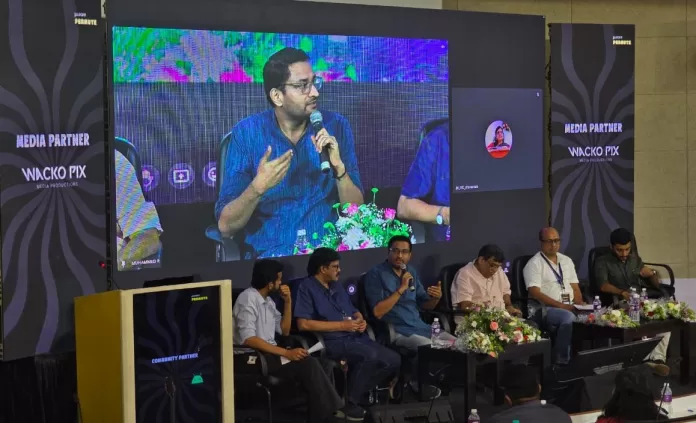Thiruvananthapuram, Feb. 23: Industry needs to show more openness by adopting the RTD (Recruit, Train & Deploy) model to recognize genuine skills, according to experts.
Speaking at a seminar on ‘Bridge the Gap 2.0: Fostering Future Skills in Education’ at Technopark here today, they said the industry must come out with good placement options as the RTD model would yield good results.
The seminar was organised by the Group of Technology Companies (GTECH), the industry body of IT companies in Kerala, as part of its MuLearn, an industry-enabled digital platform for peer learning to nurture students with expertise in the IT industry.
The event was held on the sidelines of GTECH’s annual event, Permute.
Shri Prashanth N, Special Secretary, Scheduled Castes & Scheduled Tribes Development Department, said the Department has been following the RTD model for a year, which has been highly successful for them.
Shri Prasanth said through the model, they have collaborations in the aviation sector, including IATA, besides KASE and Keltron.
“We have produced an air hostess from the tribal community, and another candidate is undergoing pilot training. It is unfair to keep the candidates waiting after skill acquisition. Their time is also valuable,” he noted.
According to Shri Prasanth, earlier, they used to fund Rs 10 to 20 crore every year in skilling alone, but the result was pathetic.
“The ecosystem was happy but there was no placement as such. Now we have tied up with various industries insisting on cent per cent placement through the RTD model,” Shri Prasanth added.
Dr Saji Gopinath, Vice-Chancellor of KTU & Digital University, who spoke through videoconferencing, said creating skills within the education system is needed, and MuLearn is important in that aspect.
Dr Gopinath said KTU is coming up with a revised curriculum from next year, making it much more liberal and flexible.
“We are trying to adopt the model of keeping one semester for internship. Sometimes corporate may not have internship opportunities when universities prescribe,” he observed.
Calling for deeper engagement with industry, he said universities need to be industry responsive, and faculty should get exposure to industry.
Commenting that faculty immersion into industry is more relevant, Dr Gopinath said KTU will implement it soon as they are working closely with GTECH and CII in this regard.
“Faculty must understand the nuances of industry and it will curate the knowledge content they provide in classrooms. So, industry knowledge is going to make a big difference,” he said.
“RTD is a good model which is followed by certain MNCs and other companies. That sort of model has to evolve on a large scale,” Dr Gopinath added.
Explaining the wider issues of skilling, Dr PV Unnikrishnan, Member Secretary, KDISC, said a demand-driven skilling is not happening now and colleges and universities have to develop skilling programmes with industry.
Dr Unnikrishnan stressed the need to create a mentorship pool to ensure that quality mentorship is happening considering the ‘wicked’ problems like disaster and solid waste management in the state.
Dr Ashalatha, Joint Director, Directorate of Technical Education, and Shri Sreekumar V, GTECH Secretary and Centre Head, TATA Elxsi, also spoke.
Dr Jayashankar Prasad, Director, DCSMAT Institutions, was the moderator.
GTECH has a membership base of 300-plus IT companies comprising 80 per cent of IT professionals in the state, totalling over 1.5 lakh. All leading IT companies in Kerala, including TCS, Infosys, Wipro, Cognizant, IBS Software, UST, EY and Tata Elxsi, are members of GTECH.














